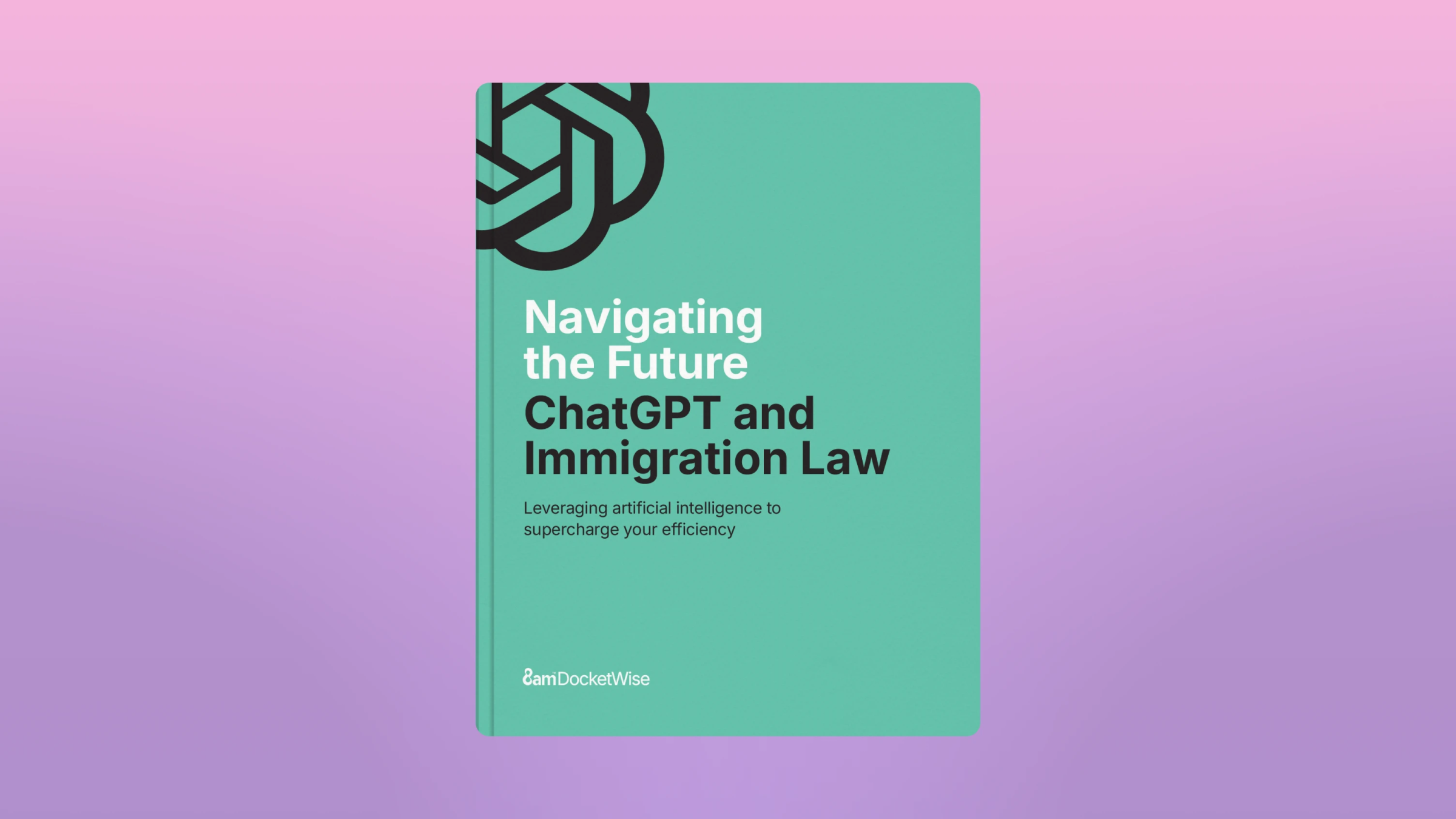In April 2024, U.S. Citizenship and Immigration Services (USCIS) implemented its first significant fee increase since 2016.
These changes in immigration law bring a higher fee when it comes to H1-B visas with an increase of 70% and a 201% rise for L-1 visas. The introduction of a $600 Asylum Program Fee and a 12% hike in premium processing fees add further implications.
So let’s take a look at all the changes and what they mean exactly.
Reasons for the USCIS Fee Increase
USCIS Funding Model
USCIS primarily operates on fees collected from applicants rather than taxpayer funding. This self-sustaining model requires periodic fee adjustments to cover rising operational costs and expanding responsibilities which is what happened back in April.
The fee structure, last updated in 2016, became insufficient due to reduced application volumes during the COVID-19 pandemic, leading to a $1.9 billion annual shortfall.
"USCIS faces significant challenges, including staffing shortages, processing backlogs, and the need for improved customer service. The fee hikes are intended to enhance efficiency and service delivery, enabling the agency to manage its workload better and provide timely adjudications," explains Jonathan Wasden, a plaintiff's attorney in the lawsuit against USCIS.
Operational Challenges
USCIS faces significant challenges, including staffing shortages, processing backlogs, and the need for improved customer service. The fee hikes are intended to enhance efficiency and service delivery, enabling the agency to manage its workload better and provide timely adjudications.
What USCIS aims to do with the increased fees is support hiring additional staff, upgrading technology, and reducing the backlog of applications.
Public Feedback and Adjustments
The new fee structure was shaped by over 5,400 public comments. Feedback led to adjustments minimizing the impact on vulnerable groups, such as maintaining fee waivers for those unable to pay and introducing new exemptions.
April 2024 USCIS Fee Changes Breakdown
Family-Based Applications
Form | Past Filing Fee | New Filing Fee | Increase % |
|---|---|---|---|
Form I-130 (Petition for Alien Relative) | $535 | $675 | 26% |
Form I-485 (Application to Register Permanent Residence or Adjust Status) | $1,225 | $1,440 | 18% |
For those filing Form I-485, additional costs for employment authorization ($260) and advance parole ($630) will now apply, adding to the overall expense.
Employment-Based Applications
Form | Past Filing Fee | New Filing Fee | Increase % |
|---|---|---|---|
Form I-129 (H-1B Visa Peition) | $460 | $780 | 70% |
Form I-129 (L-1 Visa Petition) | $460 | $1,385 | 201% |
Form I-129 (O-1 Visa Petition) | $460 | $1,035 | 129% |
Form I-140 (Immigrant Petition for Alien Worker) | $700 | $715 | 2% |
Form I-907 (Request for Premium Processing) | $2,500 | $2,085 | 12% |
Form I-765 (Application for Employment Authorization) | $410 | $470 (online) $520 (paper) | 15% (online) 27% (paper) |
Additionally, a new $600 Asylum Program Fee will be applied to Forms I-129 and I-140, with exemptions available for nonprofits and smaller businesses.
Other Significant Increases
The EB-5 Investor Visa sees one of the most dramatic fee increases, with the filing fee for Form I-526/I-526E rising from $3,675 to $11,160, representing a 204% increase. This substantial hike reflects the high value of the benefits conferred by the EB-5 program and the intensive adjudication process required for these applications. Additionally, the fee for Form I-829, used to remove conditions on permanent residence, increased from $3,835 to $9,525.
Premium processing fees are also rising to $2,805, reflecting the increased demand for expedited services. This service allows applicants to receive a decision within 15 calendar days, providing significant value to those needing urgent processing. The fee hike aims to address the heightened demand for faster adjudications and to support the agency's operational costs.
The green card renewal fee, particularly for Form I-90 (Application to Replace Permanent Resident Card), will see a decrease from $540 to $465 for paper-based filers, while online filers will benefit even more from a reduced fee. This change is intended to streamline the process and encourage more applicants to use the online system, enhancing overall efficiency.
Impact on Immigration Clients
For individuals and families, the higher costs of applications like Form I-130 and Form I-485 will add financial strain. To that end, it’s more important than ever to submit applications on time to avoid further increases and delays and also look into fee waivers to make sure they can still access immigration services without breaking the bank.
In the same vein businesses that are sponsoring foreign workers will see a noticeable rise in costs, especially for H-1B and L-1 visas. This means employers will need to reassess their budgets and possibly adjust their hiring practices.
The Lawsuit Against USCIS
Overview of the Lawsuit
In 2024, a coalition of immigration advocates and business groups initiated a lawsuit against the USCIS following significant increases in fees for various immigration services. This legal challenge argues that the hikes are not only excessive but were also implemented without proper justification and lacked the necessary public consultation and procedural adherence.
The lawsuit particularly highlights systemic issues within USCIS's operational and data management practices, especially in the EB-5 program, as noted on our podcast featuring Jonathan Wasden. His remarks underscored the poor recordkeeping and unclear data management within USCIS, which the lawsuit aims to address.
The Catalyst for the Lawsuit
The immediate trigger for the lawsuit was the sharp increase in fees across multiple H1-B petitions, which are seen as creating financial barriers that could prevent access to essential immigration services.
Legal Grounds of the Lawsuit
The lawsuit contends that USCIS failed to conduct the necessary fee studies and did not link the fee increases to performance metrics as mandated by recent legislative requirements. The absence of this study, which was supposed to be completed by March 1, 2023, forms a central part of the legal arguments against the fee rule.
As Jonathan Wasden remarked: "The fees are going to push out the less economically benefited folks from the market, particularly for EB-5 applicants who are not predominantly wealthy and are likely to be priced out.”
Legal Process and Timeline
The legal proceedings for this challenge involve several steps, including filing motions for preliminary injunctions aimed at temporarily halting the implementation of the new fee structure until the case is fully resolved. Wasden explained the strategic considerations involved, including the preference for a preliminary injunction over a temporary restraining order (TRO), which they ended up having to request due to timing.
Precedents and Prospects
Past legal challenges of USCIS fee increases have had mixed outcomes, providing uncertain precedents for this current case. However, the outcome of this lawsuit could establish significant precedents for future regulatory actions and adjustments to fees. Despite the uncertainties, there is cautious optimism about the strength of the legal arguments, particularly concerning the requirement for a comprehensive fee study.
Special Considerations and Exemptions for the USCIS Filing Fee Increase
As USCIS implemented a revised fee structure effective April 1, 2024, several special considerations and exemptions have been introduced to lessen the financial burden on specific groups and encourage efficient application processes.
Fee Waivers and Reductions
The updated fee schedule includes expanded exemptions specifically tailored for nonprofits, small businesses, and vulnerable groups. Nonprofits and small businesses benefit from reduced fees across several application types, which can ease the financial strain associated with the immigration process. Vulnerable groups, including low-income applicants and humanitarian cases, may be eligible for fee waivers, ensuring access to necessary immigration benefits without prohibitive costs.
Discounted Fees and Biometric Fee Removal
USCIS has introduced discounted fees for applications filed online, incentivizing applicants to use the online portal. This measure not only reduces the cost for applicants but also streamlines processing for USCIS, enhancing overall efficiency. Additionally, the agency has eliminated separate charges for biometric services, integrating these costs into the application fees, simplifying the fee structure, and reducing the total cost for many applicants.
Strategic Filing Advice
Online Filing Benefits
As a legal professional, you should advise clients to take advantage of online filing to benefit from lower fees and faster processing times. All of that can be done on the USCIS website, where clients can access the online portal for their application submissions.
Accuracy and Completeness
It is crucial for applications to be meticulously completed and accurately submitted to avoid delays, additional costs, or denial. Attorneys should ensure all submissions are double-checked and adhere to the latest USCIS guidelines and requirements.
How to Adjust To the Changes
Your clients should know there are ways to handle the new costs effectively, whether it's for filing the I-130 form or other forms we've mentioned. Here are some strategies to consider:
Submit Applications Early: Advise your clients to submit their applications before the new fees take effect. This can help them avoid paying higher costs.
Adjust Budgets: Recommend that your clients adjust their budgets to accommodate the new fees. Proper financial planning can help them manage these changes more easily.
Look for Fee Reductions or Waivers: Inform your clients about any available fee reductions or waivers. Understanding how to apply for these can provide financial relief.
Additionally, legal and financial planning will be crucial to manage these changes efficiently. To further enhance your practice’s productivity, consider using Docketwise. Its features can help you streamline document management and resolve cases faster, making your practice more efficient and effective.
Stay Informed, Stay Prepared
The USCIS fee increase in 2024 is a change aimed at addressing the agency's operational costs and improving service delivery. These adjustments will impact a wide range of applications, significantly affecting both individuals and businesses. While the increased fees may pose challenges, they are designed to ensure better resource allocation, reduce backlogs, and enhance overall efficiency in the immigration process.
Applicants and stakeholders are encouraged to plan strategically to manage these changes effectively, taking advantage of available exemptions and discounts to mitigate the financial impact.
That being said, there won't be any USCIS new fee schedule but if anything happens, we won’t just provide the best software for lawyers on the market but also the latest update so stay tuned.Want to try out the best case management software, schedule a demo now.
Transform Your Practice with ChatGPT
Discover how AI, particularly ChatGPT, can revolutionize your practice, from automating tasks to mastering effective prompting.
Download Now
About the author
Justin Fisher is a Content Writer and SEO strategist for Docketwise, a leading professional business solution. He specializes in writing about emerging legal technology, financial wellness for law firms, and more.

